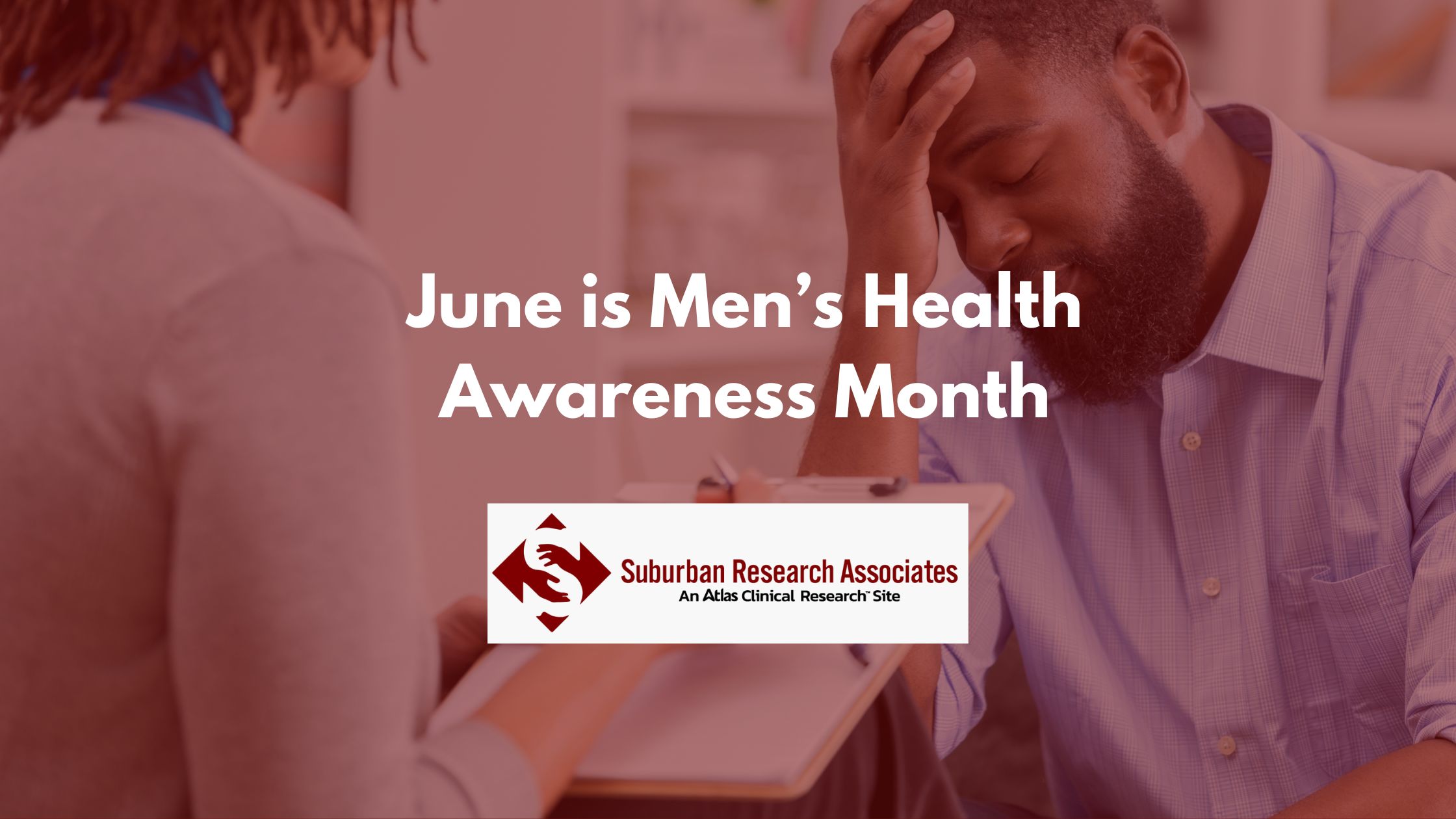*Potential Trigger Warning: Mention of suicide is included in this article.
June is Men’s Health Month! So, we wanted to shed some light on men’s mental health. Oftentimes due to stigma and judgement, men’s mental health can go dismissed or overlooked. However, It’s nonetheless prevalent and important!
Just as physical health and illness, mental health does not discriminate against gender, race, background, etc. It is approximated that 1 in 10 men will struggle with mental health concerns such as anxiety and/or depression. What’s more striking however is that less than half of men struggling will seek out treatment (Mental Health America).
Additional Statistics:
In addition to depression and anxiety, it is estimated that panic disorder, agoraphobia, and other phobias are also diagnosed in more than 3 million men in the United States. Bipolar disorder is equally prevalent in both men and women, affecting approximately 2.3 million Americans a year. Finally, 90% of the 3.5 million people in the United States diagnosed with schizophrenia by age 30 are men (All stats obtained from the Anxiety & Depression Association of America).
Warning Signs and Symptoms:
Symptoms and warning signs of mental health struggles are very similar to warning signs and symptoms that can be seen in anyone struggling with mental health. These include isolation/withdrawal, substance use or misuse, excessive risk-taking, mood changes, suicidal thoughts, decreased interest or pleasure in things, aggression, anxiety, among others.
Another important factor to consider in men’s mental health is that suicide attempts in men are often more lethal compared to other populations. Researchers suggest this is because men are more likely to use methods more likely to cause direct death, might have a harder time controlling the urge to act on an attempt, and show fewer warning signs due to the stigma and that comes with talking about mental health (Anxiety & Depression Association of America & National Institute of Mental Health).
What Can You Do:
If you’re struggling with mental health, there are a host of treatment options available such as general talk therapy, medication, or a combination of different treatments. It’s important to consult with a licensed healthcare professional about your concerns and symptoms so that they can help determine the best path of treatment for you!
If you know someone who is struggling, don’t be afraid to start the conversation. Sometimes all it takes is asking someone how they are or if they’re okay to feel seen and heard. Knowing that seeking help alone can also be hard, offering to help someone struggling find the help they need can also be beneficial. At the forefront, minimize judgement, especially if someone does decide to open up about their mental health concerns.
Break the Silence:
The stigma against mental health is strong in general. Given the stronger stigma around men and mental health, more work is needed to bring men’s mental health into awareness. Awareness begins with speaking up, sharing information such as the statistics mentioned here, and starting the conversation with someone you might see struggling to open that door of communication. We hope you’ll join us in this mission!




